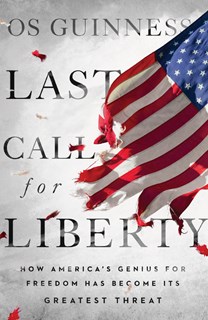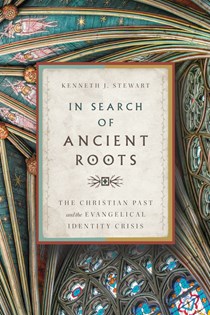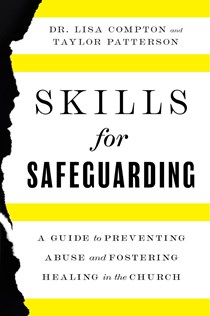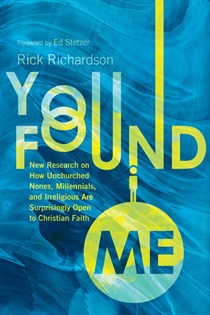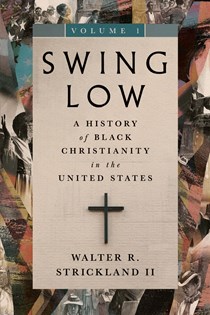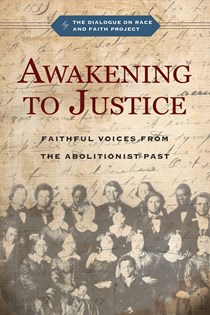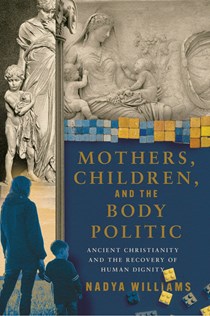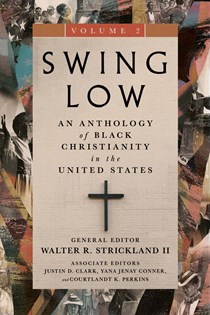Church & Society
-
The Religion of American Greatness
What’s Wrong with Christian Nationalism
Foreword by David French
by Paul D. MillerLong before it featured dramatically in the 2016 presidential election, Christian nationalism had sunk deep roots in the United States. From America's beginning, Christians have often merged their religious faith with national identity. But what is Christian nationalism? How is it different from patriotism? Is it an honest quirk, or something more threatening?
Paul D. Miller, ...
-
Last Call for Liberty
How America's Genius for Freedom Has Become Its Greatest Threat
by Os Guinness
Logos Bookstore Association Award
World Magazine Book of the YearThe hour is critical. The American republic is suffering its gravest crisis since the Civil War. Conflicts, hostility, and incivility now threaten to tear the country apart. Competing visions have led to a dangerous moment of cultural self-destruction. This is no longer politics ...
-
In Search of Ancient Roots
The Christian Past and the Evangelical Identity Crisis
by Kenneth J. Stewart
The Gospel Coalition Book Award; Jesus Creed Book of the Year in Church History
Protestant evangelicalism is in crisis.
As evangelicals increasingly lose contact with the churches and traditions descending from the Reformation, it becomes harder to explain why one should remain committed to the Reformation in the face of perceived Protestant deficits ...
-
Skills for Safeguarding
A Guide to Preventing Abuse and Fostering Healing in the Church
by Lisa Compton and Taylor Patterson
The Only Textbook on Safeguarding for Faith-Based Ministries and Seminaries
Christians are called to care for the vulnerable, but churches have not always led the way in becoming places safe from abuse. Increasingly, organizations and churches are recognizing the importance of the field of safeguarding: training and equipping people to prevent abuse, ...
-
Iglesia mestiza
Cinco siglos de justicia social, teología e identidad latina
by Robert Chao Romero
Translated by Jesús Escudero Nava
Foreword by Justo L. GonzálezEstá creciendo el interés, la conciencia y la demanda por el conocimiento de que la justicia social es algo que sale de la fe cristiana. Pero esto no es algo nuevo.
Por quinientos años la cultura e identidad latina han sido moldeadas por sus desafíos al statu quo religioso, socioeconómico y político, ya sea en oposición al colonialismo español, las dictaduras latinoamericanas, ...
-
You Found Me
New Research on How Unchurched Nones, Millennials, and Irreligious Are Surprisingly Open to Christian Faith
by Rick Richardson
Foreword by Ed StetzerMany bemoan the decline of the church. But new research shows that unchurched Americans are surprisingly more receptive and open to the Christian faith than is commonly assumed.
Researcher and practitioner Rick Richardson unveils the findings of the Billy Graham Center Institute’s groundbreaking studies on the unchurched. A study of 2000 unchurched people across the country ...
-
Swing Low, volume 1
A History of Black Christianity in the United States
Swing Low Set
by Walter R. Strickland II
A Groundbreaking Portrait of African American Christianity
The history of African American Christianity is one of the determined faith of a people driven to pursue spiritual and social uplift for themselves and others to God's glory. Yet stories of faithful Black Christians have often been forgotten or minimized. The dynamic witness of the Black church in the United States ...
-
Awakening to Justice
Faithful Voices from the Abolitionist Past
by The Dialogue on Race and Faith Project, Jemar Tisby, Christopher P. Momany, Sègbégnon Mathieu Gnonhossou, David D. Daniels III, R. Matthew Sigler, Douglas M. Strong, Diane Leclerc, Esther Chung-Kim, Albert G. Miller, and Estrelda Y. Alexander
"O where are the sympathies of Christians for the slave and where are their exertions for their liberation? . . . It seems as if the church were asleep."
David Ingraham, 1839
In 2015, the historian Chris Momany helped discover a manuscript that had been forgotten in a storage closet at Adrian College in Michigan. He identified it as the journal of a ...
-
Mothers, Children, and the Body Politic
Ancient Christianity and the Recovery of Human Dignity
by Nadya Williams
How we talk about human life matters.
In western post-Christian society, humans are thought of less like precious image bearers and more like commodities. The canary in the coal mine of this ideological shift is often women and children, which manifests itself in the seemingly built-in disdain towards motherhood and children for their lack of production of economically valuable ...
-
Swing Low, volume 2
An Anthology of Black Christianity in the United States
Swing Low Set
General Editor Walter R. Strickland II
Associate Editor Justin D. Clark, Yana Jenay Conner, and Courtlandt K. PerkinsA Groundbreaking Portrait of African American Christianity
The history of African American Christianity is one of the determined faith of a people driven to pursue spiritual and social uplift for themselves and others to God's glory. Yet stories of faithful Black Christians have often been forgotten or minimized. The dynamic witness of the Black church in the United States ...



